Words of French origin
(Many words from French are used in English)
2. Something that protects an animal from attack by making the creature difficult to see in its environment: Some rabbits have white fur which functions as camouflage in the snow.
3. A behavior which is meant to hide something or to convince others of something that is not true: Herb's strong attitude functioned as camouflage for his insecurity.
4. Etymology: from French camoufier, "to disguise"; which came from Italian camuffare, "to trick, to disguise"; a contraction of capo muffare, "to make sounds quieter by covering the head".
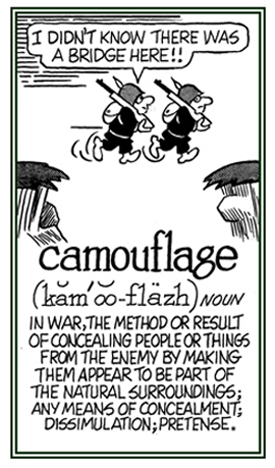
Go to this Word A Day Revisited Index
so you can see more of Mickey Bach's cartoons.
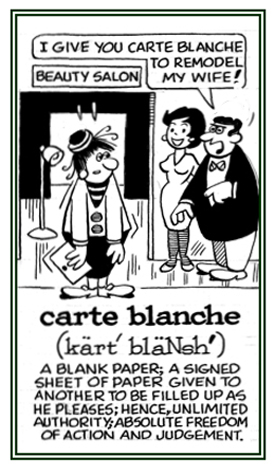
Go to this Word A Day Revisited Index
so you can see more of Mickey Bach's cartoons.
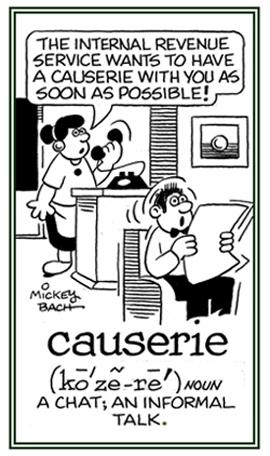
Go to this Word A Day Revisited Index
so you can see more of Mickey Bach's cartoons.
The chiffon scarf which Sally tied around her summer hat matched the pink pattern in her skirt.
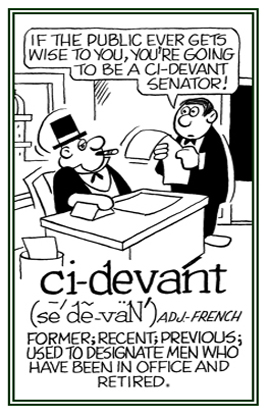
Go to this Word A Day Revisited Index
so you can see more of Mickey Bach's cartoons.
2. Sycophantic followers, or servile self-seekers, of a well-known person: The famous actor was often surrounded by a claque of adoring people who wanted him to notice them so they could take his picture; especially, when he would stand next to them in the photographs.
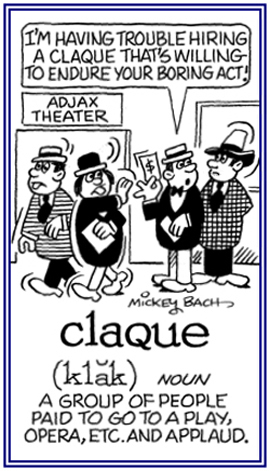
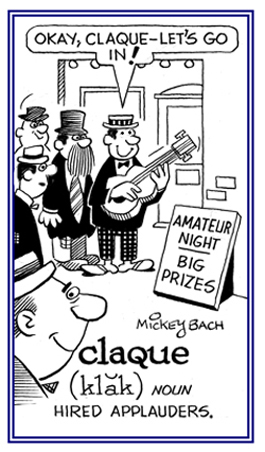
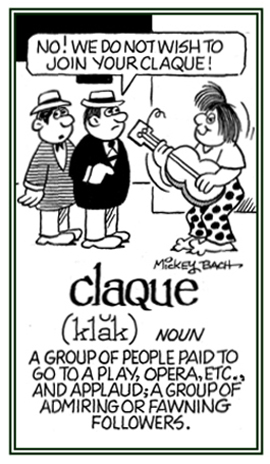
Go to this Word A Day Revisited Index
so you can see more of Mickey Bach's cartoons.
Such behavior of people was refined in the theaters of 18th and 19th-century France, where the term claqueur, or someone who claps, was coined.
Why do performing artists need claqueurs? Some performers like to have a few extra seconds to catch their breaths between the end of an adagio and the beginning of a variation.
Dancers of the Bolshoi rarely talk in public about the existence of claqueurs for self-preservation even when the artist has confidence and doesn't feel the need for guaranteed applause any more; however, some of the Bolshoi's claqueurs are known as 'thin-skinned and vengeful', and they can come up with a variety of strategies for disturbing the performances of any uncooperative dancer.
2. The blouse or top half of a dress: The corsage of Mrs. Atkinson's dress, which she wore on somber occasions, was dark blue.
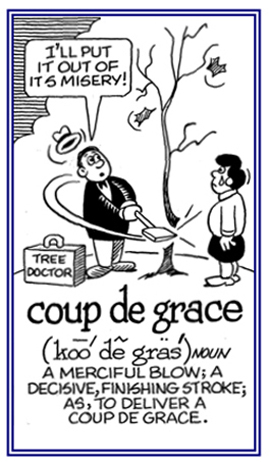
Go to this Word A Day Revisited Index
so you can see more of Mickey Bach's cartoons.
2. A form, which, when completed and mailed to a company sponsoring a raffle or a competition, entitles the sender the opportunity to win a prize or to receive information: Jane often sent coupons to firms hoping to acquire useful gifts, such as a toaster or coffee maker!


